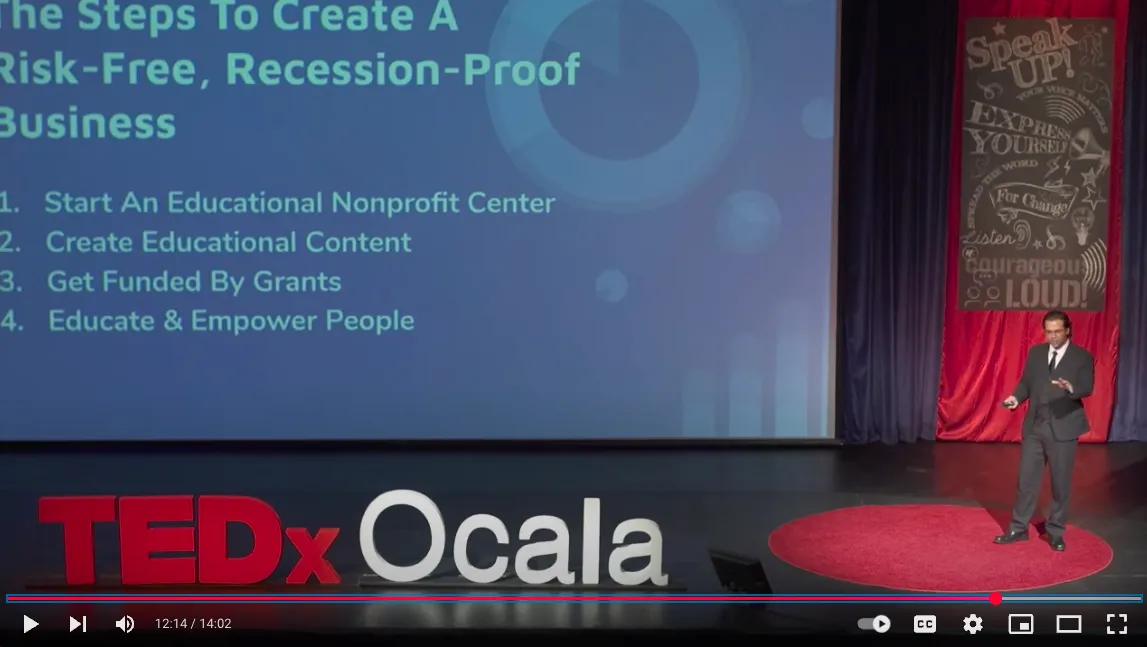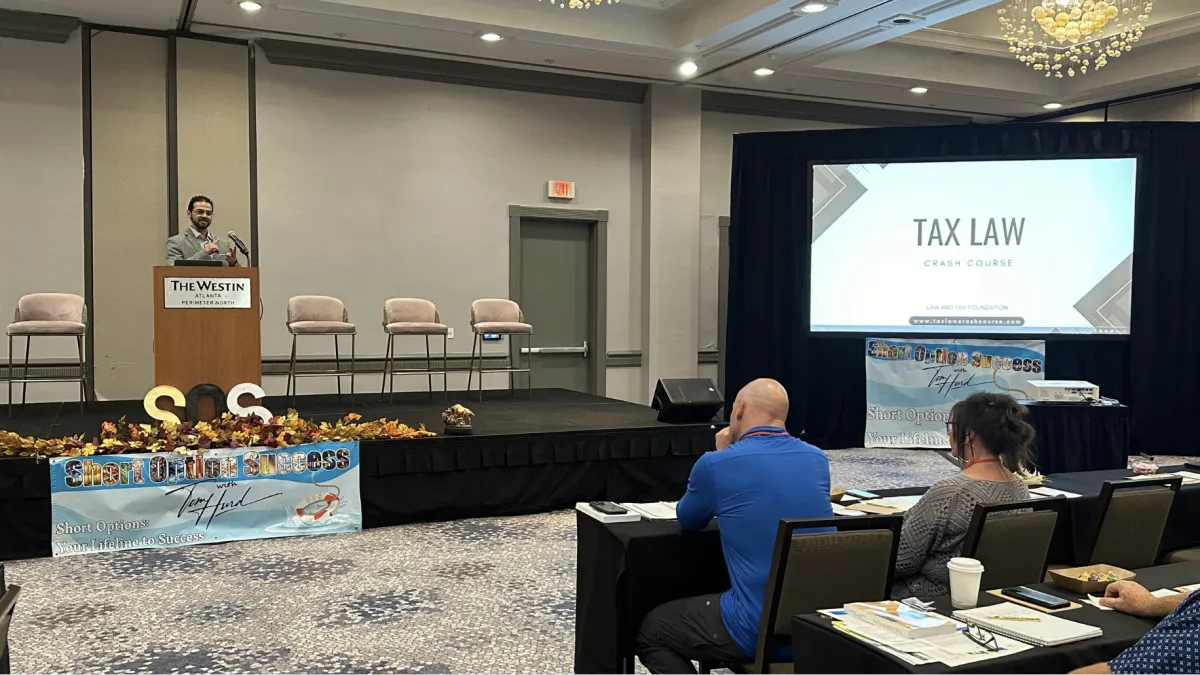Tax Law Crash Course:
Don’t Just Learn the Code. Live It.
Walk away with a robust understanding of US federal tax concepts, how they are imposed at various stages, how the elite families use the tax code, and how you can incorporate these strategies as well to mitigate losses, lower personal risk and liability, earn, save, invest, and transfer wealth more efficiently, and reduce or even bypass several layers of taxes while you are alive and well after your death.
The Tax Code Taxes Who You Are...
We always begin with one question: Who are you?
Under IRC §7701(a)(1), a “person” isn’t just an individual—it can be a trust, estate, corporation, foundation, or association. Each one is taxed differently.
By default, most people operate as individuals, tied to their Social Security Number (SSN). Every dollar they earn - from jobs, businesses, or investments - is reported on Form 1040 and its associated schedules.
They earn, spend, save, invest, gift, and donate in their own name—and eventually pass on what’s left through their estate.
But the wealthy don’t rely on a single identity.
They operate through multiple legal identities - corporations, partnerships, trusts, estates, and foundations - to earn, manage, and transfer wealth strategically.
More identities = more options = more control.
This course helps you understand those identities—and how to legally use them to reduce taxes, protect assets, and build lasting legacy… just like the elite.
👋 From Your Instructor – Sid Peddinti™
Hi, I’m Sid Peddinti.
I'm a Philosopher, Researcher, Speaker, and International Business & Tax Lawyer who is obsessed with technology & AI.
My journey and experiences have been filled with ups and downs, and I'm a first-hand example of what happens when you make silly legal mistakes and don't understand how the law works.
Before we talk about tax, wealth, or legal strategy - we need to talk about you. As explained earlier - the tax code taxes us based on the roles we are playing and how those are captured in the form of tax forms.
Real strategy begins with philosophy:
Who are you? I'm sure there's more to you than your profession...
Who are you becoming? Where you started vs where you are now...
What do you stand for? What are the values you want to pass on...
What are you doing with your wealth? What is your relationship with money...
My journey began in a Krishnamurti-based philosophy school in India and led through million-dollar bankruptcies, international tax law studies, and the founding of multiple tax and tech ventures. I’ve helped over 10,000 clients restructure $5B+ in assets.
From building AI-driven platforms and nonprofit initiatives to speaking on 200+ stages and writing for Forbes, my work lives at the intersection of law, technology, and identity.
What I’ve discovered is this: the tax code is philosophy in disguise.
It taxes how you behave, what you control, and who you choose to be.
Hoard wealth? You pay the highest rate.
Gift or share it? You defer or reduce tax.
Donate strategically? You gain control, legacy, and leverage.
Bruce Lee taught me to adapt - to flow through structure like water.
Andrew Carnegie taught me that wealth is a duty - to build something greater than yourself.
This course is built on that duality:
Know yourself.
Design wisely.
Contribute meaningfully.
You’ll learn how to turn foundations into family legacy hubs, use trusts to redirect generational wealth, and align your tax identity with your values.
This isn’t just about saving money. It’s about building something that outlives you—and guides your family tree for generations.
If you're ready to lead not just as a provider, but as a visionary architect of impact—you’re in the right place.
Everything in this course is backed by:
IRS publications
Tax codes & legal opinions
Landmark court cases
AI-powered calculators, guides, and planning tools
Let’s begin.
~ Sidhartha


I've shared business, legal, tax, and philanthropy strategies across a variety of stages and platforms

9. Real-Life Applications and Case Strategies
The goals of learning how different tax concepts work and how different legal entities can be leveraged strategically is to be able to make day-to-day decisions in a much more organized, calculated, well-researched, and confident manner.
Here are some of the day-to-day decisions that the training program is designed to help you evaluate and execute with more precision:
Business ownership: How to structure the business, tax elections to choose, evaluating pass-through taxation and pass-through risks.
Distribution of assets to heirs: Evaluating tax rates and whether you should distribute assets to them now versus after your death
Insurance: Which entities to use, how to structure them, lowering risks and taxes, ownership of policies, and transfer of different policies
Real estate: How to hold, control, trade, sell, and pass-on real estate in a highly tax-efficient manner while lowering liability as well
Stock and investments: How to hold and sell stock, mutual funds, crypto, and other assets in a tax-efficient manner
Vehicles, art, collectibles: How to use different entities to lower the risks of owning and controlling a variety of assets
Charitable investing: Learn how to leverage nonprofits and foundations to lower taxes, bypass probate, avoid estate taxes, grow a tax-exempt portfolio of assets, and create meaningful impact
10. Thrive On All Fronts™
The goals of learning how different tax concepts work and how different legal entities can be leveraged strategically is to be able to make day-to-day decisions in a much more organized, calculated, well-researched, and confident manner.
Inspired By Personal Experiences Of Our Instructors Who Have Faced It All, From...
Million-Dollar Bankruptcies, business asset seizures, liquidation and auctioning of assets, corporate entities piercing, insurance scams, investment scams, probate of family members, unexpected death tax bills, inheritance disputes, nonprofit and tax scams, copycats and imposters, partnership and employee disputes, etc.
This is not just "business" - it's personal. It's our mission. It's our obsession.
This is what we live and breathe everyday.
This is not just a crash course - it's real-life situations that happened to us, to our clients, to our family members, and peers.
Backed by Cases & Codes™:
Each strategy is grounded in:
Internal Revenue Code and content published on government sites: IRS, FTC, FBI, DOJ, USCIS, etc.
IRS Publications and Guides
Treasury Regulations and Private Letter Rulings (PLRs)
Strategies used by elite estate lawyers, accountants, financial advisors, and insurance agents that work in a family office setting serving multi-millionaires, or at private wealth firms incuding: Charles Schwab, Raymond James, Edward Jones, Bank of America, Wells Fargo, Vanguard, Fidelity, JP Morgan, TD Bank, Pacific Life, Allstate, State Farm, GEICO, and other private investment firms - all of whom we've had the pleasure of working in a close capacity with.
Who This Course Is For
This crash course is designed for:
Business owners, real estate investors, and professionals earning $200,000/year+ a year
Individuals approaching $2M - $40M+ net worth
Anyone looking to pass wealth down, exit a business, or reduce taxes legally
Advisors, lawyers, or accountants expanding into strategic tax structuring
Investors looking to liquidate assets, investments, or real estate
Investors who are ready to bypass loopholes and follow strategies used by the elite in a family office setting
Those looking to spot scammers, fraudsters, and imposters who are offering law, tax, and financial strategies without the training, education, required licenses, or verifiable cases and codes
What You’ll Learn in This Course
Module 1: Philosophy First
Understand the role of values, vision, and self-knowledge in financial strategy
Learn the three wealth archetypes—Hoarder, Gifter, Donor—and discover which one you are
Explore the deeper meaning behind every tax—ownership, transfer, rebirth
Module 2: The Tax Code as Philosophy
Decode the estate and gift tax thresholds ($13M per person / $26M per couple)
Examine how the tax code reflects societal values on mortality, control, and distribution
Recognize the invisible forces (“death events”) shaping your wealth
Module 3: Structural Mechanisms & Strategy
Compare the three strategic paths: Sell, Gift (irrevocable trusts), Donate (foundations)
Learn the legal and tax pros/cons of each path—immediate vs. deferred impact, control, cost
Understand portability, step-up basis, and rule timing
Module 4: Trusts, Foundations & Legacy Architecture
Design and launch an irrevocable trust: mechanics, compliance, and transfer tax steps
Build a private foundation: governance, grantmaking, and your family's role
Align financial structures with personal and generational values
Module 5: Courtrooms & Case Law
Study real court decisions interpreting tax concepts — audit risks, lifetime gifts, marital deduction
Practice framing tax questions as legal arguments
Gain insight into how judges interpret intent and substance over form
Module 6: AI & Self‑Discovery in Tax Strategy
Leverage AI tools to surface your values, blind spots, and decision-making patterns
Use structured self-assessment to connect philosophy with financial outcomes
Apply insights from your AI-driven profile to personalize your legal strategy
Module 7: Your Integrated Wealth Blueprint
Map your personal philosophy to tax code strategies
Build a comprehensive, vertically-aligned ecosystem: values ➝ structures ➝ legacy
Know exactly when—and why—you’d choose: Sell, Gift, or Donate
Bonus Workshops & Templates
Form 709 walkthrough: IRS filing best practices
Draft trust and foundation “philosophy letters”
Interactive case studies: real-world scenarios, tools, and outcomes aligned with identity
You Don't Know What You Don't Know
Learn tax law to not not only make good decisions, but also avoid bad ones
Imagine finding out that you can legally reduce your tax burden by 30-60% every single year and redirect those 'pre-tax' dollars towards investments, R&D grants, or even charity - which you've been doing with post-tax dollars for years, or maybe even decades.
Imagine finding out that the $10 million premium, universal, or whole life insurance policy that your insurance agent setup through an ILIT trust (irrevocable life insurance trust), was not properly reported using the IRS forms - which could mean that it's a part of your estate at death.
Imagine discovering that the complex family limited partnership with layered LLCs and holding companies, each holding real estate or business investments, does not get removed from your estate because you did not relinquish compete control and retained a right or privilege (change trustees, beneficiaries, veto decisions, make decisions, borrow funds, enjoy a property, etc.).
Imagine learning that your current education and research activities could be have been funded with upwards of $250,000 in R&D and Innovation Grants from large corporations and foundations that donate to advance the type of research your are conducing with your own profits/savings.
One more - imagine learning that your revocable trust and pour-over will have the bank named as successor trustees and your entire portfolio of assets are going to be managed by them at their sole discretion and a court order is needed to remove them.
Real stories. Real problems. Real solutions.

© 2024 Tax Law Crash Course. All rights reserved. No legal, tax, financial, or compliance advice provided. All trademarks and copyrights owned by Law and Tax Foundation.